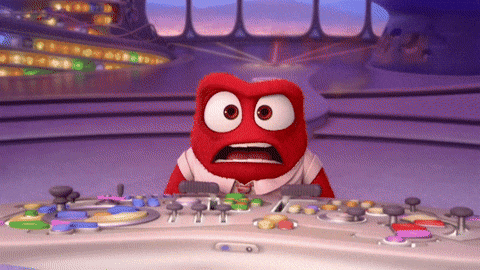People Pleasing in your relationship? 5 hard truths from ‘The Subtle Art of Not Giving a F**k’
People pleasing is the depiction of giving too many f**ks.
If you follow me on Instagram (@courageouslyyoucoaching) you’ll be aware from the amount I share Mark Manson’s posts, that I think he is an absolute international hero.
I’m a massive fan of Mark Manson and his direct and unforgiving way of communicating. The lessons I learned from his book ‘The Subtle Art of Not Giving a F*ck’, were the final piece of self reflection that led me to make my final decision about my relationship.
So I’ve applied his wisdom in ‘The Subtle Art of Not Giving a F**'k’ to my reflections on people pleasing, and how people pleasing might be showing up in you and your relationship.
Unhealthy People Pleasing.
Firstly, I want to differentiate ‘healthy’ from ‘unhealthy’ people pleasing. There’s nothing wrong with wanting to please others, as someone who cares about the needs, desires and emotions of others. It makes us great coaches, counsellors, healthcare professionals and people!
I’m talking about the kind of people pleasing that isn’t healthy for us. The people pleasing that corrodes our sense of identity. The people pleasing that causes a sense of inner frustration and resentment. The people pleasing that’s linked to our need for self worth and being accepted and leads us feeling insecure and shamed when we’re rejected or disappointed.
What Mark Manson can teach us about people pleasing…
We need to embrace rejection
‘The only way to achieve meaning and a sense of importance in one’s life is through a rejection of alternatives, a narrowing of freedom, a choice to commit to one place, one belief or (gulp) one person.’
People pleasing is a way for us to avoid unpleasant feelings of shame that come with rejection. Somewhere along the way, it became second nature to us to strive to keep other people happy, to make sure that we were liked and to be accommodating and agreeable. Manson makes the point that avoiding rejection is often portrayed to us as a way to improve ourselves - but this is a short term pleasure. One that makes us feel great right now, but ultimately corrodes our sense of identity.
How is avoiding rejection causing you to show up in your relationship?
To know who you are, you need to reject who you’re not
We are defined by what we choose to reject. And if we reject nothing (perhaps in fear of being rejected by something ourselves), essentially we have no identity at all.
Our sense of identity comes from the values and commitments we hold ourselves accountable to. But if you accept every value or commitment of those around you because you think you need to be a certain way for people, or keep them happy, then who are you?
Do you know who you are? What do you need to reject to discover more about you?
We need to create boundaries
People can’t solve your problems for you. And they shouldn’t try, because that won’t make you happy. You can’t solve other people’s problems for them either, because that likewise won’t make them happy.
Manson defines boundaries in relationships as ‘the delineation between two people’s responsibilities for their own problems’. As people pleasers, we can get caught up in thinking we need to fix, help or take on the problems of our partners. That we somehow become responsible, even if they haven’t asked us to be.
There’s nothing wrong with supporting your partner, or someone close to you, and being there for them. But consider the following: are you doing this out of a desire and choice to be there for them, or do you feel obliged to serve their needs? Are you placing yourself as solely responsible for their happiness?
It’s not about giving a fuck about everything your partner gives a fuck about: it’s about giving a fuck about your partner regardless of the fucks he or she gives.
What boundaries do you want to create with your partner?
You will always create a problem, so make it one worth solving
Problems never stop; they merely get exchanged and/or upgraded.
Unhealthy People pleasing can be an avoidance of negative emotion and a need to feel positive emotion. In our search for ‘happiness’ we want to fulfil the needs of others and feel good about ourselves, but the search for happiness is an illusion.
We don’t reach happiness. We aim for it, then find another problem for ourselves.
If someone makes an inappropriate joke that makes you feel uncomfortable and you refuse to laugh, you create a problem of making them feel uncomfortable. If you laugh at the inappropriate joke because you don’t want them to feel uncomfortable, you create the problem of feeling guilty or resentful that you weren’t honest about how you didn’t like it. Either way, a problem is created, so make it one worth solving, accepting or letting go of.
What problems are worth creating, solving, accepting or letting go of, in your relationship?
Learn how to question yourself and interrogate your own thoughts
We shouldn’t seek to find the ultimate ‘right’ answer for ourselves, but rather, we should seek to chip away at the ways that we’re wrong today so that we can be a little less wrong tomorrow.
Certainty is the enemy of growth. Instead of striving for certainty, we should be in constant search of doubt: doubt about our own beliefs, doubt about our own feelings.
We often think we know ourselves or that we’re right about our view of ourselves and the world. But these are merely hypotheses that are to be tested, disproved and reshaped.
We have all these thoughts, both conscious and subconscious, that are driving people pleasing behaviour, but what if we questioned these assumptions?
What can you question about your automatic people pleasing thoughts, to break down the assumptions you have?
Start by reflecting on the above questions. How can you embrace rejection, set boundaries, choose problems worth solving and question your own assumptions, to tackle unhealthy people pleasing behaviours in your relationship?
Hi, I’m Rachel
I coach women in relationship doubt to understand and embrace who they are so they can find the clarity, courage and trust in themselves to make their right decision.














When this client first came to me, they were in that all-too-familiar ADHD limbo. As they put it:
"I was going through a hard time with insecurity and career, having recently learned about my late diagnosis of mixed-type ADHD. I felt inadequate at work, and unsure if I wanted to stay at my company, despite enjoying the company."